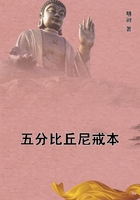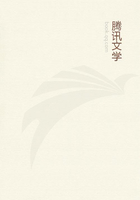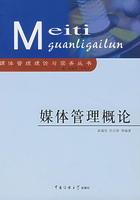Mr. Whitney (Oriental and Linguistic Studies, First Series, p. 59)gives examples of the ceremony of feeding the Aryan ghosts. "The fathers are supposed to assemble, upon due invocation, about the altar of him who would pay them homage, to seat themselves upon the straw or matting spread for each of the guests invited, and to partake of the offerings set before them." The food seems chiefly to consist of rice, sesame and honey.
Important as is the element of ancestor-worship in the evolution of religion, Mr. Max Muller, in his Hibbert Lectures, merely remarks that thoughts and feelings about the dead "supplied some of the earliest and most important elements of religion"; but how these earliest elements affect his system does not appear. On a general view, then, the religion of the Vedic poets contained a vast number of elements in solution--elements such as meet us in every quarter of the globe. The belief in ancestral ghosts, the adoration of fetishes, the devotion to a moral ideal, contemplated in the persons of various deities, some of whom at least have been, and partly remain, personal natural forces, are all mingled, and all are drifting towards a kind of pantheism, in which, while everything is divine, and gods are reckoned by millions, the worshipper has glimpses of one single divine essence. The ritual, as we have seen, is more or less magical in character. The general elements of the beliefs are found, in various proportions, everywhere; the pantheistic mysticism is almost peculiar to India.
It is, perhaps, needless to repeat that a faith so very composite, and already so strongly differentiated, cannot possibly be "primitive," and that the beliefs and practices of a race so highly organised in society and so well equipped in material civilisation as the Vedic Aryans cannot possibly be "near the beginning". Far from expecting to find in the Veda the primitive myths of the Aryans, we must remember that myth had already, when these hymns were sung, become obnoxious to the religious sentiment. "Thus,"writes Barth, "the authors of the hymns have expurgated, or at least left in the shade, a vast number of legends older than their time; such, for example, as the identity of soma with the moon, as the account of the divine families, of the parricide of Indra, and a long list might be made of the reticences of the Veda. . . . It would be difficult to extract from the hymns a chapter on the loves of the gods. The goddesses are veiled, the adventures of the gods are scarcely touched on in passing. . . . We must allow for the moral delicacy of the singers, and for their dislike of speaking too precisely about the gods. Sometimes it seems as if their chief object was to avoid plain speaking. . . . But often there is nothing save jargon and indolence of mind in this voluntary obscurity, for already in the Veda the Indian intellect is deeply smitten with its inveterate malady of affecting mystery the more, the more it has nothing to conceal; the mania for scattering symbols which symbolise no reality, and for sporting with riddles which it is not worth while to divine." Barth, however, also recognises amidst these confusions, "the inquietude of a heart deeply stirred, which seeks truth and redemption in prayer". Such is the natural judgment of the clear French intellect on the wilfully obscure, tormented and evasive intellect of India.
Les Religions de l'Inde, p. 21.
It would be interesting were it possible to illuminate the criticism of Vedic religion by ascertaining which hymns in the Rig-Veda are the most ancient, and which are later. Could we do this, we might draw inferences as to the comparative antiquity of the religious ideas in the poems. But no such discrimination of relative antiquity seems to be within the reach of critics. M.
Bergaigne thinks it impossible at present to determine the relative age of the hymns by any philological test. The ideas expressed are not more easily arrayed in order of date. We might think that the poems which contain most ceremonial allusions were the latest. But Mr. Max Muller says that "even the earliest hymns have sentiments worthy of the most advanced ceremonialists".
History of Sanskrit Literature, p. 556.
The first and oldest source of our knowledge of Indo-Aryan myths is the Rig-Veda, whose nature and character have been described.















